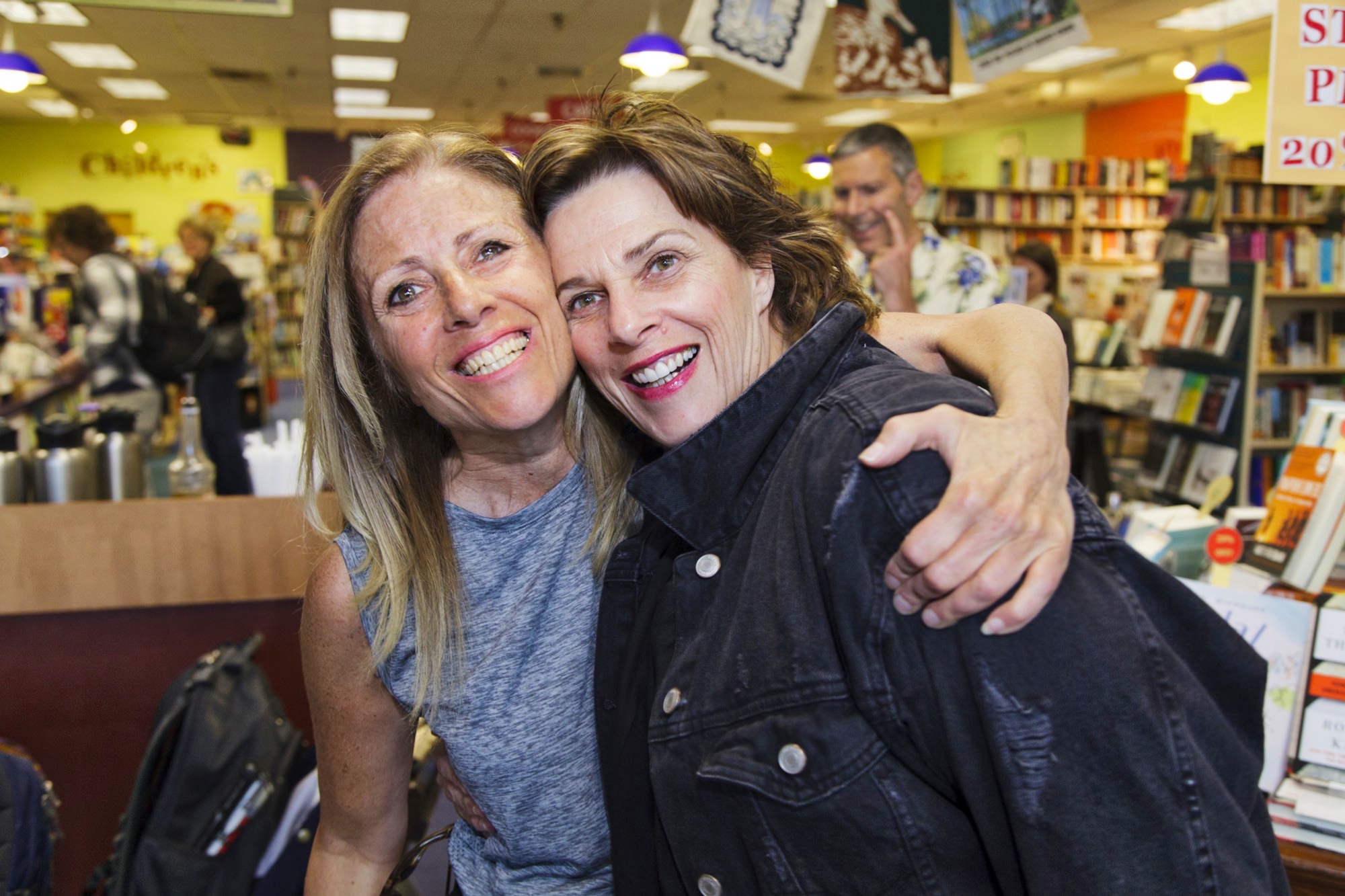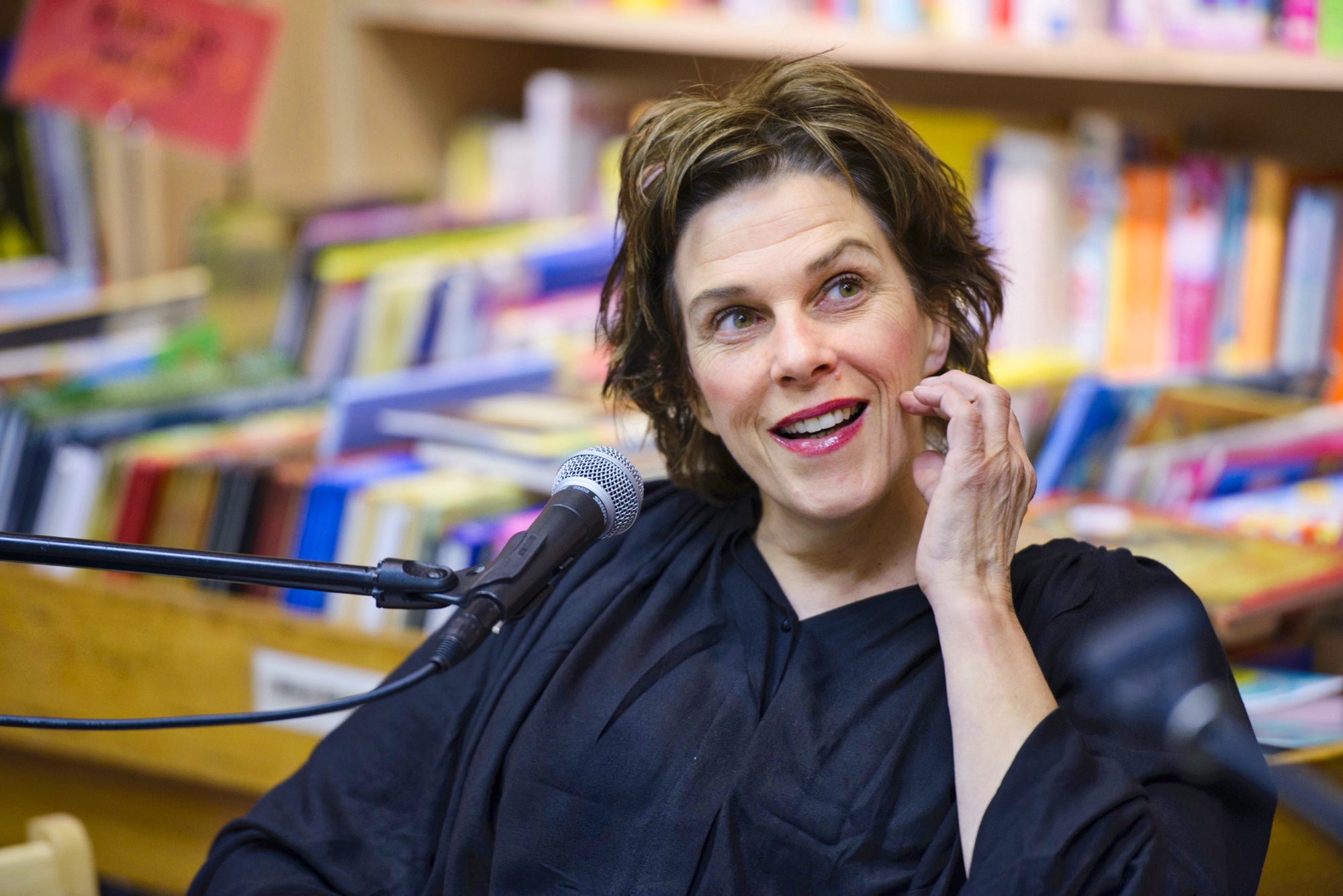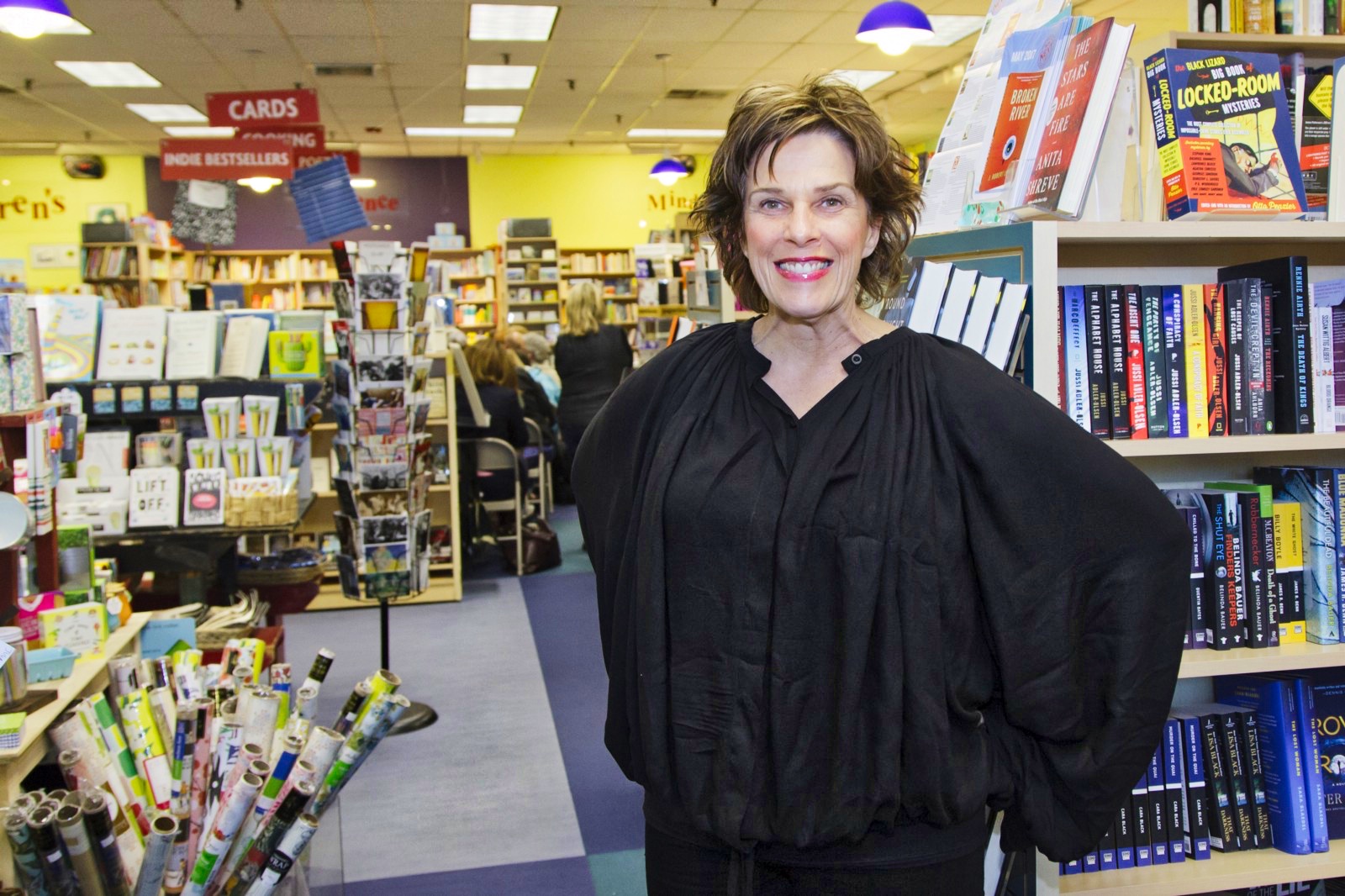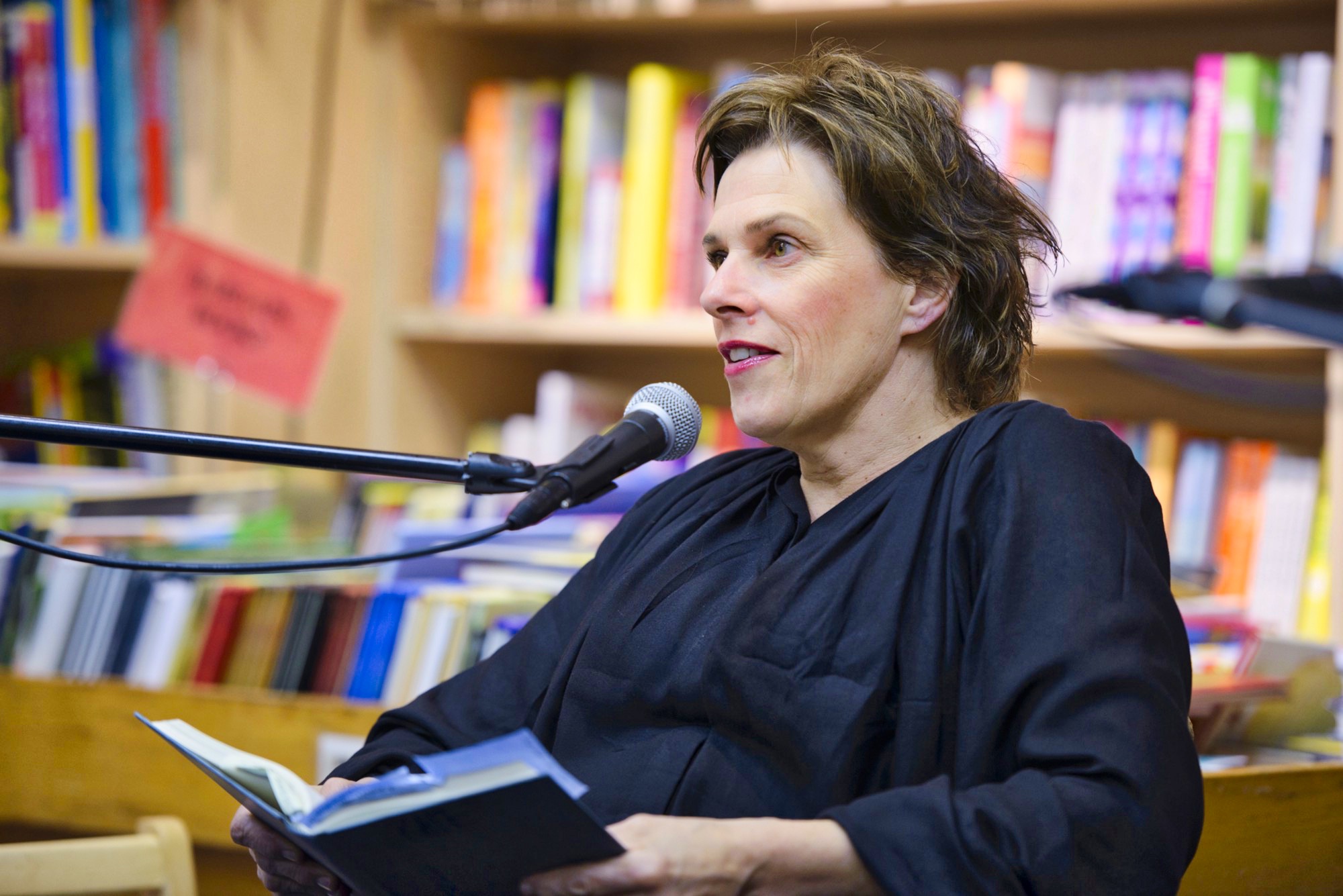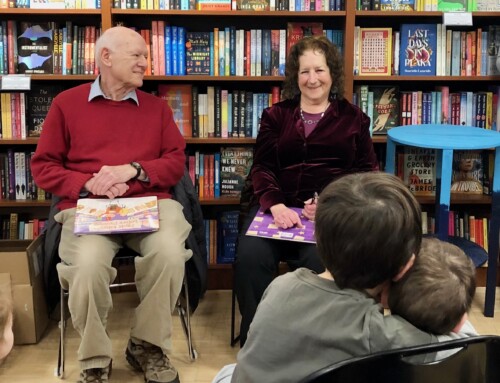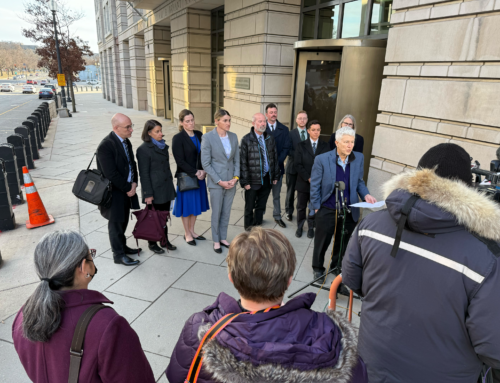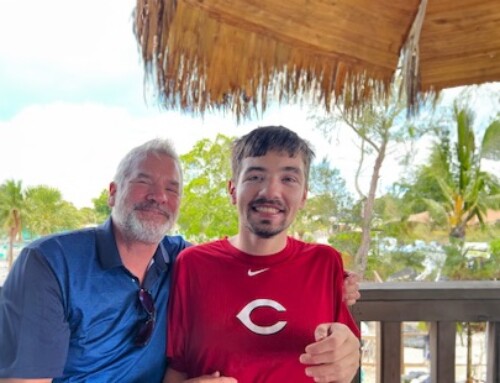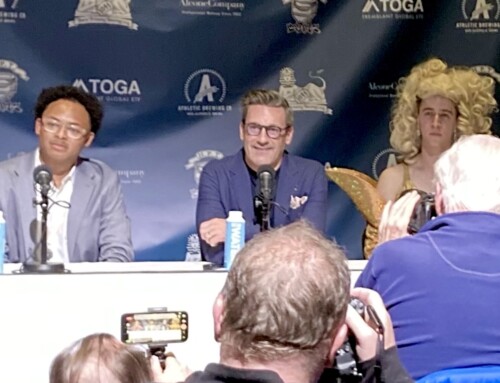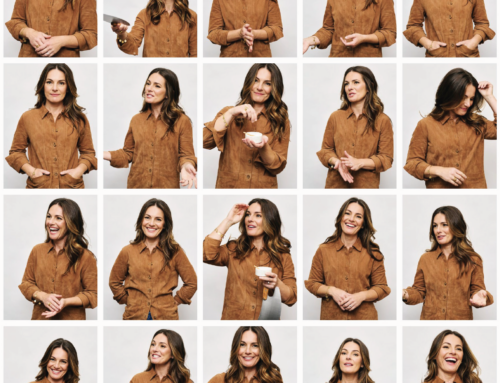This interview with chef and entrepreneur Barbara Lynch was originally published on Thrive Global on May 17, 2017. I had the opportunity and privilege to interview Barbara during her whirlwind book tour just after she was named as one of Time Magazine’s 100 Most Influential People.
Tell me that I can’t and I’ll show you that I can.
On a beautiful, sunny day in late April, I sat at the porch table at the Massachusetts home of much-awarded chef and now author, Barbara Lynch. The second-ever woman to win the James Beard Foundation Award for Outstanding Restaurateur, her restaurants include B&G Oysters, Menton, and her flagship №9 Park. She is currently touring to promote her new memoir, Out of Line: A Life of Playing with Fire.
I am blind and hard of hearing, so Lynch gave me the opportunity to see her as she sees herself — through her eyes, not mine. We were joined at the table by Charlie Petri, whom she married in 1997 (they are currently separated); and their daughter, Marchesa, who was born in 2004.
Marchesa described the scene for me: the dog, the yard, the trampoline. Good energy replaced the pre-interview anxieties I’d had because my knowledge of food was limited and my lack of sight made me feel awkward.
But everyone made me feel welcome.
LIVINGSTONE: This is something I ask in all my interviews. Can you describe yourself? How would you describe yourself to somebody who can’t see?
LYNCH: Normal — not really. Uh, humble.
LIVINGSTONE: Everybody’s been telling me you have green eyes, that’s all I know. Green eyes.
LYNCH: Kind of like your color, hazel. Yeah, hazel, but when I get mad, they’re gray! Nope, they’re hazel. And green. And when I get angry, they’re uh —
LIVINGSTONE: Red?
LYNCH: Like a gray, stone gray.
LIVINGSTONE: They’re not gray now, are they?
LYNCH: No, they’re green now. I’m very down to earth and really, really just normal. When people meet me they’re surprised how human I am, and how normal I am. I mean, because they read all this press, and they just think —
PETRI: She’s not a diva.
LYNCH: I’m not a diva.
LYNCH: No, I’m really down to earth. And … [pauses]. Just a curious human being, I’m just a very curious person. And I still like to learn a lot.
LIVINGSTONE: When I say describe yourself, do you want to, and you don’t have to, describe your hair, or anything like that?
LYNCH: Oh, it’s dark brown, shagged.
LYNCH: Cut by Sally Hershberger, the most expensive haircut ever. [Hershberger is best-known for Meg Ryan’s haircut in “When Harry Met Sally.” — Ed.]
LIVINGSTONE: Really?
LYNCH: Yeah.
LIVINGSTONE: How would you describe it?
LYNCH: It’s one of those famous shag haircuts. She cuts Hillary Clinton’s hair, Tom Cruise, Joan Jett … She put, what’s that famous actress, [pauses], I forget her name. I don’t know, Sally Hershberger, she’s like the rock-star of haircuts.
MARCHESA: She’s known for the short, shaggy haircuts.
LIVINGSTONE: Can I touch it?
LYNCH: Yeah! Touch it! It’s just shaggy.
LIVINGSTONE: Wow, OK.
LYNCH: It makes my cheekbones pop out, it gives a good face feature.
LIVINGSTONE: Do you want to describe anything else?
LYNCH: I’m five foot four, uh, slightly, a bit, like, not overweight, but just slightly, you know, I’m — I’m strong-looking, I guess.
LIVINGSTONE: Yeah, you are strong.
LYNCH: Big hands.
LIVINGSTONE: What is the highlight of your life right now?
LYNCH: My daughter.
LIVINGSTONE: Oh, nice! And do you want to add anything else?
LYNCH: A successful businesswoman at this point. I mean, who knew, right?
LIVINGSTONE: Yes, yes.
LYNCH: So, I’m proud of that. First of all I’m really proud of my daughter being my friend. She understands why I’m not home as much. But I’m also really proud of being a successful restaurateur, a chef-owner. I don’t have partners and I don’t have a huge company, and as an owner, I am the owner. I created this mess, I created this person, and we’re still going strong, which is unheard of, really. №9 Park is on its 20th year, and that is a miracle. And it’s still better than ever.
LIVINGSTONE: What is your favorite dish?
LYNCH: To prepare? Pasta! I love cooking, OK, so I’m the chef who loves to cook, and doesn’t really love to eat. I could eat peanut butter and jelly every day or tuna fish every day, or yogurt and berries.
LIVINGSTONE: Oh, that’s interesting!
LYNCH: I’m not a foodie-foodie. I just love cooking food.
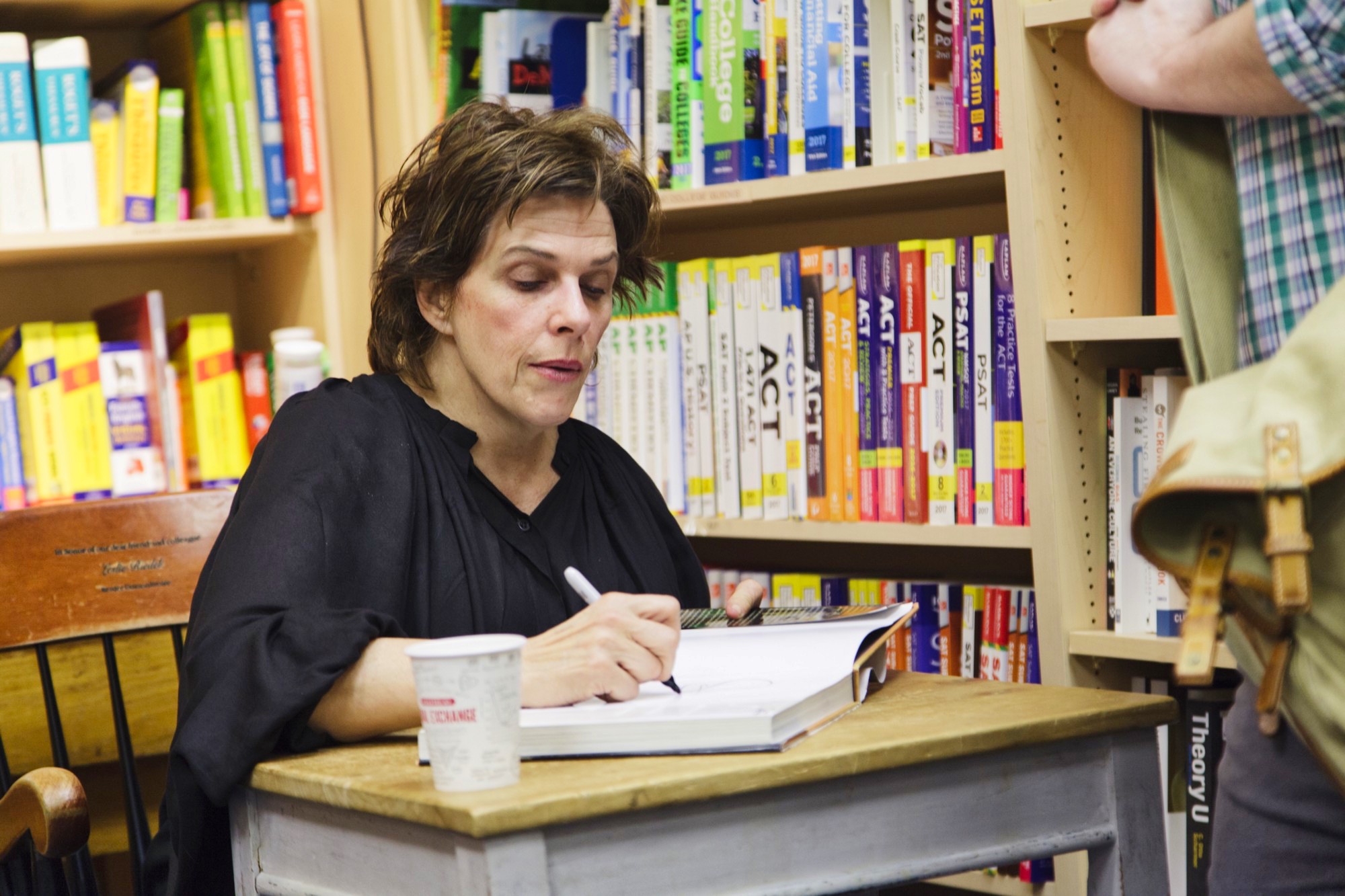
Barbara Lynch Signing Books at Porter Square Bookstore in Cambridge, MA, Photographer: Kevin D Grady (kevindgrady@gmail.com)
LIVINGSTONE: Would you consider yourself a spiritual person?
LYNCH: Well, I always believed in God. I believe in God, or a higher power for sure, because I got myself into some serious pickles, and I would always say, you know, God, just get me through this one, and I swear to God I’ll never do it again. And to this day, I still say, thank you, God. I’m always saying thank you. Anytime I walk in a door, or I get home, or I walk into my restaurant, it’s thank you, God; thank you, God; thank you, God. So I honestly feel like He’s been, He or She has been, around me forever.
LIVINGSTONE: Do you know where that came from?
LYNCH: I don’t believe in the business of the church, or the business of any religion. I don’t like it. I think it’s, it’s a very … religion is a business. And politics is a business. Wouldn’t it be great if people believed in themselves, and could make a decision on their own, instead of being led by a dictatorship or a leadership in general? We would be a much happier world, and an independent world would be nice, in ways where we could all get along, and believe in a higher power, whether it was Buddhism, or any sort of, you know, there’s one power, and there is a higher power. I believe in angels, I believe in spirituality, I believe you have to have a faith. You just have to have faith.
LIVINGSTONE: And you always had it?
LYNCH: I always had it. Marchesa is Catholic. She was baptized, but we didn’t go through the church. We did not go through communion and confirmation, because that’s the business of the church. So she can choose where she has a faith, she can choose whatever religion, really. She can always choose a higher power, which I embedded in her.
LIVINGSTONE: Did you always feel an intuition of what you could accomplish?
LYNCH: No. I knew if I could cook, I would always have a job. Because I couldn’t follow anybody else’s directions, because I have ADD.
LIVINGSTONE: But your chutzpah is inspiring.
In her memoir Out of Line, Lynch describes hurting herself when she fell off some monkey bars as a girl. Terrified, she ran home to be comforted, but her mother — overwhelmed and depressed — simply told Lynch to lie down and get over it.
LYNCH: I was a wild child. My friend Jane, who’s in the book, is like, “Oh, my God, Barbs, you were always running from everything.” I was — “Wait, wait, wait, no, no, I gotta go, I gotta go.” When I jumped off the monkey bars, or I fell off the monkey bars — People were like, “Hold on, let us help you.” “No, I want to go home.” And I just realized, I was always afraid of thunder, rain, and rain and thunderstorms, and now I know, Marchesa’s afraid of thunderstorms … And I forgot all about it! I would always run home, I was afraid of thunderstorms. And my friend reminded me, so, there’s a lot of things now that are coming back to me that I forgot, that are very similar to Marchesa.
LIVINGSTONE: So she’s sort of echoing some of the things … that you actually remember.
LYNCH: Yeah. And she loves to cook!
LIVINGSTONE: Oh really?
LYNCH: Oh, yeah. She’s my toughest critic, by the way.
LIVINGSTONE: Oh, nice!
LYNCH: Yeah. She doesn’t hold back: “There’s too much water.” She won’t say it, she just walks by, and like looks at me, and she empties out the water, and does this little smile, and I go, uh-oh, I screwed up.
LIVINGSTONE: <Laughs.>
LYNCH: I loved to cook when I was her age 12 and 13, I just wanted to cook, I wanted to create things. And she’s always creating things.
LIVINGSTONE: What would you say if you wanted to describe one of your funniest moments, whether it’s past or present? There are a lot of humorous situations that you mentioned in your book.
LYNCH: Funniest moments?
LIVINGSTONE: Yeah! Or what do you enjoy most?
LYNCH: Oh, my God, making my friends laugh! Making Marchesa laugh. She asked me to jump on the trampoline, and I was like, you really don’t want me to jump on the trampoline. Because —
LIVINGSTONE: Really?
LYNCH: Oh, my God, after having a child there’s no reason to jump on a trampoline. You just pee your pants. There’s like, there’s no way you — I know! She’s like, “Get off the trampoline!”
<Both laugh.>
LYNCH: That’s why I stopped boxing. There’s no way you can jump rope and not pee your pants, because there’s a certain incontinence that happens that’s just not right, and so she was laughing. But oh, my God, I’ll still do anything for a laugh.
LIVINGSTONE: What is the most challenging experience for you right now?
LYNCH: Of course, of course: the book tour. I feel like I want to call up like Arianna Huffington, and say, “How do you do it?” Or Doris Kearns Goodwin, “How do you maintain a life?” Because she’s on book tours all the time. “How do you do it?”
LIVINGSTONE: Are you travelling across the country?
LYNCH: I’m home, I unpack, I pack, and I go out again. It’s awful, I don’t even have time to like work out, you don’t have mindspace. I still have eight restaurants to take care of, I have a daughter, I have a house to …, you know. I eat in my car, it’s disgusting. Or I don’t eat at all.
LIVINGSTONE: Really?
LYNCH: Yeah. It’s bad. Your normal life is turned upside down. Your routine.
The book tour has also interrupted Lynch’s home life with her daughter.
LYNCH: Marchesa’s like me, too, she has a big heart. A huge heart, and lots of friends. She’s a popular kid, so you see the popular gang, and the like, the non-popular kids.
MARCHESA: Mom?
LYNCH: What?
MARCHESA: This is your interview, not mine.
LYNCH: I know … And she looks just like me.
LIVINGSTONE: She does?
LYNCH: Yeah.
LIVINGSTONE: Yeah? Adorable.
LYNCH: Adorbs.
LIVINGSTONE: Do you have any anxiety or fears that you want to talk about?
LYNCH: I have anxiety. I hate ticks. Yeah, and I had one on me the other day, and now I’m neurotic about it.
LIVINGSTONE: Oh, you mean you’re worried about Lyme disease?
LYNCH: Yeah, yeah. So I go, “I’m so tired, I think I have Lyme disease.” <Laughs.> I don’t have it.
LIVINGSTONE: <Laughs.>
LYNCH: Yeah, I don’t know. I feel good again.
LIVINGSTONE: <Laughs.> So funny. Is there anything else you want to add?
LYNCH: No, I’m good at that. I think the Time 100 I was overwhelmed with.
LIVINGSTONE: Yeah.
LYNCH: Um, and that’s over.
LIVINGSTONE: How was that experience?
LYNCH: Surreal. Very surreal. My Uber driver was like, “Wow, you know, with over 7 billion people in the world, that’s pretty amazing [that you’re one of the 100 most important].” I’m like, huh, did you have to say that? I’m like, I kinda liked my work, my little small world was pretty good. But 7 billion, when you think about it, that was pretty amazing.
LIVINGSTONE: Yes
LYNCH: So the gala’s over, and when you’re in the room, it was pretty freaking amazing to be in that world —
LIVINGSTONE: What went through your mind?
LYNCH: When you’re in that room, when you’re with that many amazing people, it makes you want to be even better, and that’s an uplifting moment, in that you went in with them. The woman who found the Zika virus was following me around all night long, “I need another photo of my family …” And she’s from Brazil, and I was her biggest fan, and I couldn’t understand that. But she’s like this tiny older woman from Brazil who, amazing — She’s a geeky scientist, and we’re already emailing each other. And Arianna Huffington’s my biggest fan, and I love, you know, I always from afar was her fan, and we’re emailing each other so … and then this doctor from India, who helps women … He’s building houses for women to give birth [in], so they’re not giving birth in the fields. I really want to work with him, and I want to build portable kitchens and so forth, and he was at my table. His son is opening a restaurant in New York [and he’s been] working with Michael White for about 10 years, and Michael White’s business partner I love, he always checks in with me, I don’t know why but he just does. He was a partner at Goldman Sachs. At first I didn’t like that guy, but the fact that he checked in with me when we had the Marathon bombing, and he flew me down to New York for his whole team, I love the guy now. You know? So, I, it just made me want push this bubble. This is my next journey. I want to help the world.
LIVINGSTONE: How do you feel about your own success at this point?
LYNCH: I’m not done yet.
LIVINGSTONE: Another 50 years.
LYNCH: Thank God! I mean, it’s better to be successful than unsuccessful. And it’s good, because people generally don’t like to see you successful. In my world where I come from, in South Boston, they’d rather be cheering me on. That’s why I love the book, because it makes women from South Boston heroes, which is great. Most movies about South Boston are about the mafia.
PETRI: Whitey.
LYNCH: And Whitey and women are usually stupid, and no jobs, and welfare, and that’s just not the truth. We all stuck together and we helped each other. My mom wasn’t single because she chose to be; she was a widow. And a lot of South Boston, those projects we built because of World War II. The Southie pride comes from World War II veterans who didn’t return. You know, it’s Irish-Catholic: A lot of them had seven kids, eight kids, 13 kids, and a lot of them were proud of fighting for this country. And it wasn’t because of middle class, lower class. That’s what South Boston should be known for, not because of an uneducated, low working class.
The Fighting Irish has a good saying: We fight for what we believe in. And we fought for this country, and that’s what it should be known for. I had to survive. I grew up as a survivor because I had nothing else.
In Out of Line, Lynch writes about choosing a rundown former shoe store in downtown Boston as the site of her first restaurant, №9 Park.
LIVINGSTONE: It was amazing how you walked in there, 3,000 square feet! You knew that this was the right place for you to start your business.
LYNCH: Well, the word “No” means “Yes” to me. Like when people say, “Oh, that’ll never work,” it means, “it’ll work.”
LIVINGSTONE: I love that!
LYNCH: Because if it means “no” to somebody else, that means “yes” to me.
LIVINGSTONE: Yes, the power of the spirit, it’s really beautiful.
LYNCH: It’s a very inspirational book. Not just for anybody who wants to be a cook, a chef, or a restaurateur, it’s for anyone. And I think it’s a real voice that matters. It’s just a real voice inside there. It’s not a how-to book, or a self-help book, it’s just, “here’s my experience.” And it’s a win-win.
This interview has been lightly edited for length and clarity.
Nina Livingstone is a Boston-based writer.


